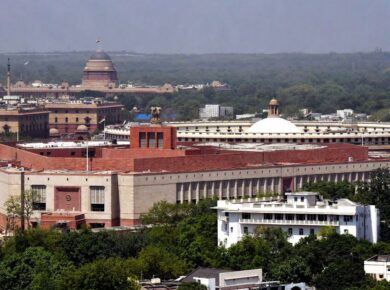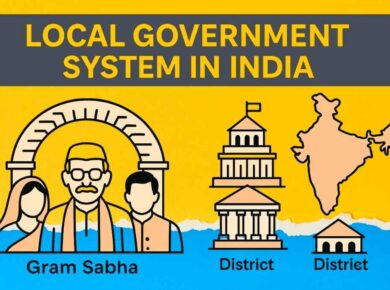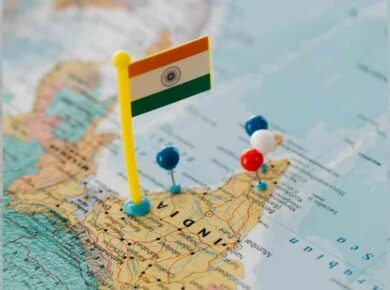Attorney General of India
“1st law officer of GOI & its chief legal advisory & primary lawyer in SC”
- Appointed by President
- Must be qualified to be appointed as a judge of SC
- Holds office during the pleasure of the President & can be removed by him anytime. Conventionally he resigns when COMs resign or is replaced as he is appointed on their advice
- Not a member of cabinet, Does not have any executive authority & is not a political appointee
Points to Ponder
- Can not defend an accused in criminal proceedings or accept directorship of any company without the permission of the government.
- Assisted by 2 solicitor generals (appointed for 3 years) & 4 additional solicitor generals (appointed for 3 years), eligible for re-appointment, for a further term not exceeding three years.
- To be consulted only in legal matters, only after ministry of law has been consulted.
Recommend for UPSC – Attorney General of India Books
Duties of the Attorney General of India
-
Chief Legal Advisor to the Government of India.
-
Represents the Government in the Supreme Court and other courts.
-
Appears in any court for the Government of India when required.
-
Provides legal advice to the President or Government on constitutional and legal matters.
-
Performs legal duties as assigned by the President under Article 76 of the Constitution.
-
Appears on behalf of the Government in cases involving the Union of India.
-
Defends the Union Government in criminal and civil proceedings.
-
Participates in the Parliament’s proceedings (without the right to vote).
-
Gives opinion on legal documents and bills referred by the Government.
-
Assists in the drafting of legal bills and legislation.
-
Represents India in international legal matters when needed.
-
Advises the Government on legal implications of policy decisions.
-
Assists in judicial appointments and transfer advice when requested.
-
Can be consulted in legal reforms and constitutional amendments.
-
Provides views on President’s reference to the Supreme Court under Article 143.
-
Advises on treaty obligations and their legal validity in India.
-
Represents the Government in disputes between states and the Centre.
-
Supports the Law Ministry in interpreting laws.
-
Keeps the Government informed of important judicial trends and verdicts.
-
Helps maintain uniformity in legal policy and interpretation across ministries.
-
Guides various ministries and departments on handling legal disputes and cases.
-
May assist in Public Interest Litigations (PILs) involving constitutional or national interest.
-
Can appear before any court in India, not just the Supreme Court.
-
Plays a role in constitutional crisis situations, offering expert legal interpretation.
-
Assists in preparing government responses to court notices or constitutional challenges.
-
Advises the government during the imposition of President’s Rule under Article 356.
-
Offers legal opinion on matters related to emergency provisions in the Constitution.
-
Guides on issues related to inter-state river water disputes.
-
Supports the government during constitutional amendments and their legal review.
-
Advises on legal aspects of economic policies, budgets, and financial legislation.
Also read: Council of Ministers and Fundamental Rights in India
Difference between Attorney General & Solicitor General:
- Solicitor General is subordinate to the Attorney General of India and works under him.
- The Solicitor General for India is the second law officer of the country, assists the Attorney General
- Unlike the post of Attorney General of India, which is a Constitutional post under Article 76 of the Constitution of India, the posts of the Solicitor General and the Additional Solicitors General are merely statutory.
For more updates about Attorney General of India, visit www.iasmania.com. Please share your thoughts and comments.
If you’re passionate about building a successful blogging website, check out this helpful guide at Coding Tag – How to Start a Successful Blog. It offers practical steps and expert tips to kickstart your blogging journey!






